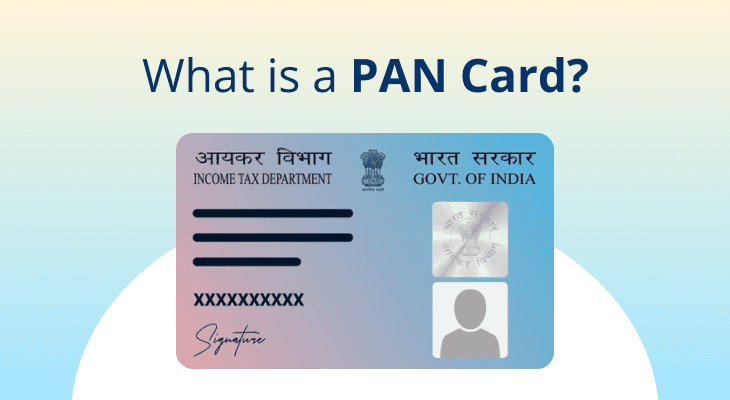
What are the Documents Required for an Education Loan?
Introduction
An education loan can help you pursue your academic dreams when funds fall short. These loans can cover a variety of academic expenses, including tuition fees, the cost of books, boarding, lodging, and more. The interest rates are competitive, and you can also claim income tax benefits under Section 80E of the Income Tax Act, 1961.
However, to enjoy all these benefits, you first need to apply for the loan. In order to get approved, your application form must be complete with all the required information and documentation. This article will help you understand the list of documents required for an education loan.
Basic documents required for an education loan
Here is the basic education loan documents list that you must refer to when applying for an education loan:
- Completed loan application form
- Marksheet and passing certificate of 10th and 12th examinations
- Two recent passport-size photographs of the co-applicant/guarantor (signed across)
- Permanent Account Number (PAN) card of the student and the parent/guardian
- Graduation result, semester-wise, if applicable
- Proof of age, such as a birth certificate, passport, or class 10th marksheet
- Proof of identity, such as Aadhaar card, passport, etc.
- Proof of residence, such as a utility bill, rental agreement, etc. In the case of applying for a course abroad, you would also need to submit a copy of your passport
- Signature proof, such as a passport
- If you have an existing loan, you also need to submit a bank statement for the past 12 months
- Entrance exam results, such as for exams like Joint Entrance Examination (JEE), National Eligibility cum Entrance Test (NEET), Graduate Record Examinations (GRE), Graduate Management Admission Test (GMAT), Test of English as a Foreign Language (TOEFL), etc.
- An admission letter or offer letter from the college or university you wish to study at. This can also be a conditional letter in case you plan to study abroad
- Fee structure or schedule of expenses for the course
- In some cases, you may also need to submit a college or course prospectus
Financial documents required from the applicant & co-applicant
The financial documents required for a student loan can differ based on your employment status. Here is a list of financial documents needed by salaried individuals if you are the co-applicant or guarantor:
- At least two of the latest salary slips
- Form 16
- Income Tax Returns (ITR) of the last two years
- Bank statements for the past 6 months from your salary account
Here is a list of financial documents needed if you are self-employed. These documents are applicable to co-applicants as well as guarantors:
- Bank statements for the past six months
- Audited profit and loss statements and balance sheets of the last two years
- Proof of business address
- Proof of turnover, including the latest Goods and Services Tax (GST) return or sales or service tax returns
- ITR of the last two years
- Professional qualification certificate, if applicable
Additional documents based on loan type and lender requirements
Apart from the documents listed above, you may also be required to submit further documentation based on the specific requirements of the bank and the loan amount you are applying for:
- Academic records for the student (applicant)
- Proof of previous loans, if any
- Account statements for the past 12 months
- Identification documents for the co-applicant/guarantor
- Security documents, if your education loan is secured. This includes the following, depending on the type of asset you use as collateral:
- Property ownership documents
- Fixed Deposit (FD) receipts
Documents checklist for quick loan approval
Tips to avoid delays in education loan processing
Here are some tips to help you avoid unnecessary delays in the processing of your education loan:
- Do not submit incomplete documentation: One of the most common reasons for delay is missing paperwork. Incomplete applications or outdated documents can slow things down significantly. Hence, you must keep all required documents ready and up to date, and submit them exactly as requested by the lender.
- Ensure there is no information mismatch: Mismatched information across your documents and application form can create confusion and lead to unnecessary delays. It is important to double-check that the details you enter on your application form, like your name, address, income information, and others, match those on your documents.
- Be realistic with the loan amount: Applying for a loan amount that is higher than what you can afford to pay back or what your course typically costs can make it harder to be approved for a loan. Lenders assess whether you will be able to repay the loan, so apply for a sensible amount that aligns with your course fees and repayment capacity.
- Have collateral ready, if required: Some education loans require collateral, such as property or an FD as security. If you are applying for a secured loan, make sure that you have your collateral documents in order and submit them early to avoid hold-ups.
- Check your credit score in advance: Your credit score decides whether your education loan gets approved. Check your score a few months before applying for the loan. If it is on the lower side, take steps to boost it, such as paying off pending dues and making all future payments on time. This can help you improve your credit history and increase the chances of getting your application approved.
Conclusion
Now that you know the documents required for an education loan, be sure to keep them ready when you apply. Having said that, it is important to cross-check the list with the lender you choose. The exact requirements can differ from one lender to another, depending on their policies and your financial situation. For example, some banks may offer quicker approvals for existing customers or have simpler documentation requirements.
So, it is always a good idea to do some background research and clarify the checklist with your chosen lender before beginning the application process.


